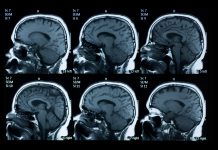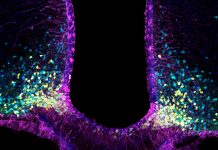Home 2024
Archives
Arc: A new target for treating alzheimer’s disease
Antonius M. VanDongen, Associate Professor from Duke University, walks us through Arc, a new target for treating Alzheimer’s disease.
Flame system: Computerised cognitive assessment for remote brain health monitoring
Monitoring brain health, particularly cognition, in older adults is increasingly recognised as a significant priority for research, healthcare and broader public health. Find out here about the development and validation of the FLAME System, a computerised cognitive assessment for remote brain health monitoring.
Exploring HER-096: A novel approach to Parkinson’s Disease
Parkinson’s disease, a progressive neurodegenerative disorder, poses significant challenges for both patients and researchers. In a recent interview with Henri Huttunen from Herantis Pharma Plc, we delved into the intricacies of their potential novel disease-modifying therapy, HER-096.
Lecanemab and other treatments: Glimmers of hope for alzheimer’s patients
Effective treatments for amyloid-associated neurological diseases are desperately needed; H. Robert Guy, CEO of Amyloid Research Consultants, talks us through the obstacles and opportunities associated with structure-based drug design.
Progress in development of disease-modifying treatments in Parkinson’s Disease
Henri Huttunen, Chief Scientific Officer, Herantis Pharma Plc, charts progress in the development of disease-modifying treatments for Parkinson’s disease.
Beyond amyloid: What’s next for Alzheimers disease therapeutics?
Bradlee Heckmann, PhD, from USF Health Neuroscience Institute, Byrd Alzheimer’s Center & Asha Therapeutics, in this discussion goes beyond amyloid, asking what’s next for Alzheimer’s Disease therapeutics.
Understanding amyloid beta and Alzheimer’s disease: the key to helping AD patients
Efforts to prevent or treat Alzheimer’s Disease (AD) by targeting Amyloid beta (Aβ) assemblies should be continued, but the strategies should be altered dramatically.
The WATCH project: Tanycytes in health and disease
The WATCH project aims to elucidate how tanycytes mediate physiological processes by acting as gatekeepers between the brain and body, how their dysfunction is involved in various disorders and age-related impairments, and what can be done to prevent or correct these.
Who benefits more from the cognitive effects of B vitamins?
Further understanding of the characteristics of the responders may shed light on how B vitamins benefit brain health and the formulation of more effective forms of B vitamins.
Alzheimer’s drug slows memory decline in phase 3 trial
Henry Scowcroft from Alzheimer’s Research UK, argues that an Alzheimer’s drug, lecanemab, can slow memory decline in a phase 3 trial.











